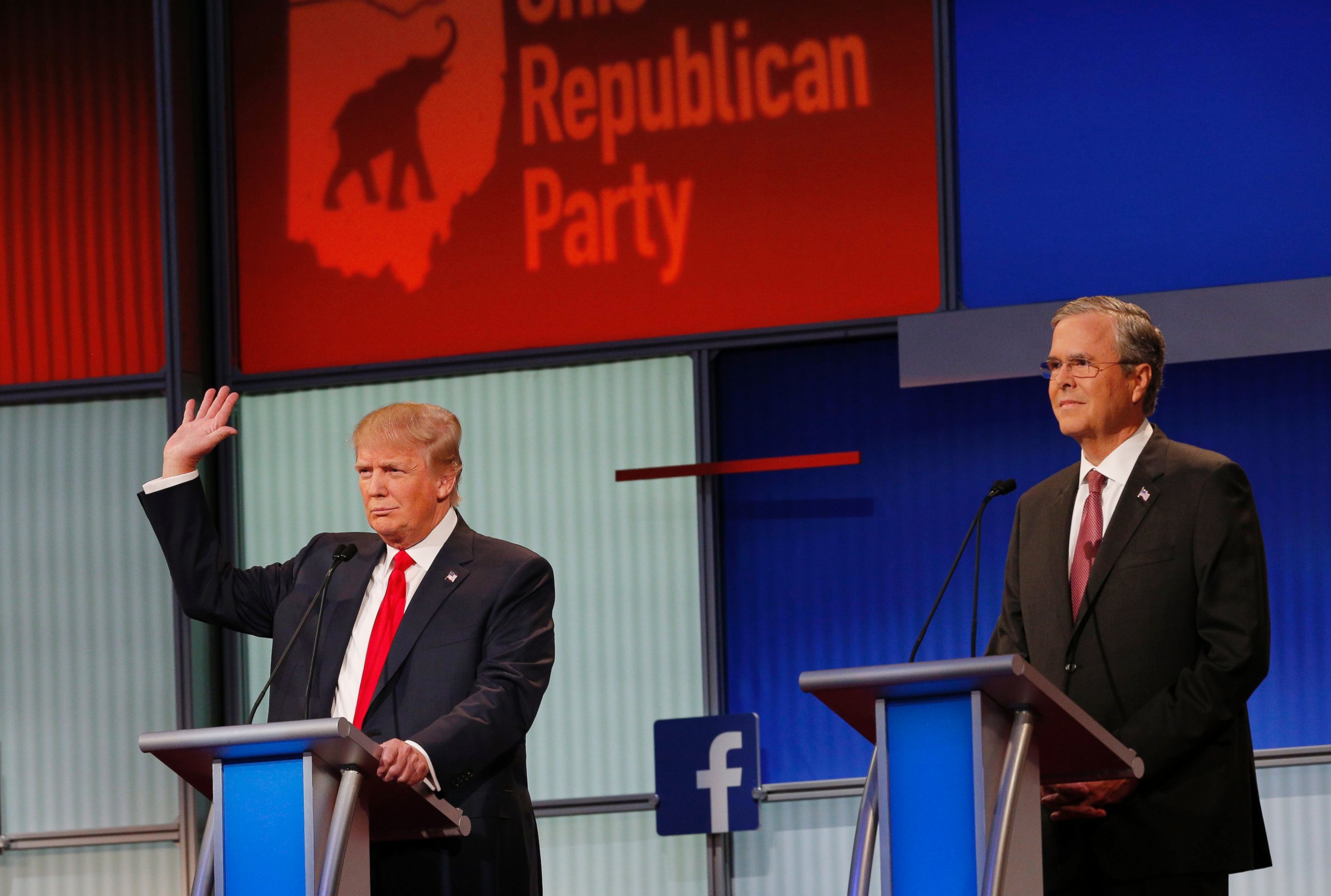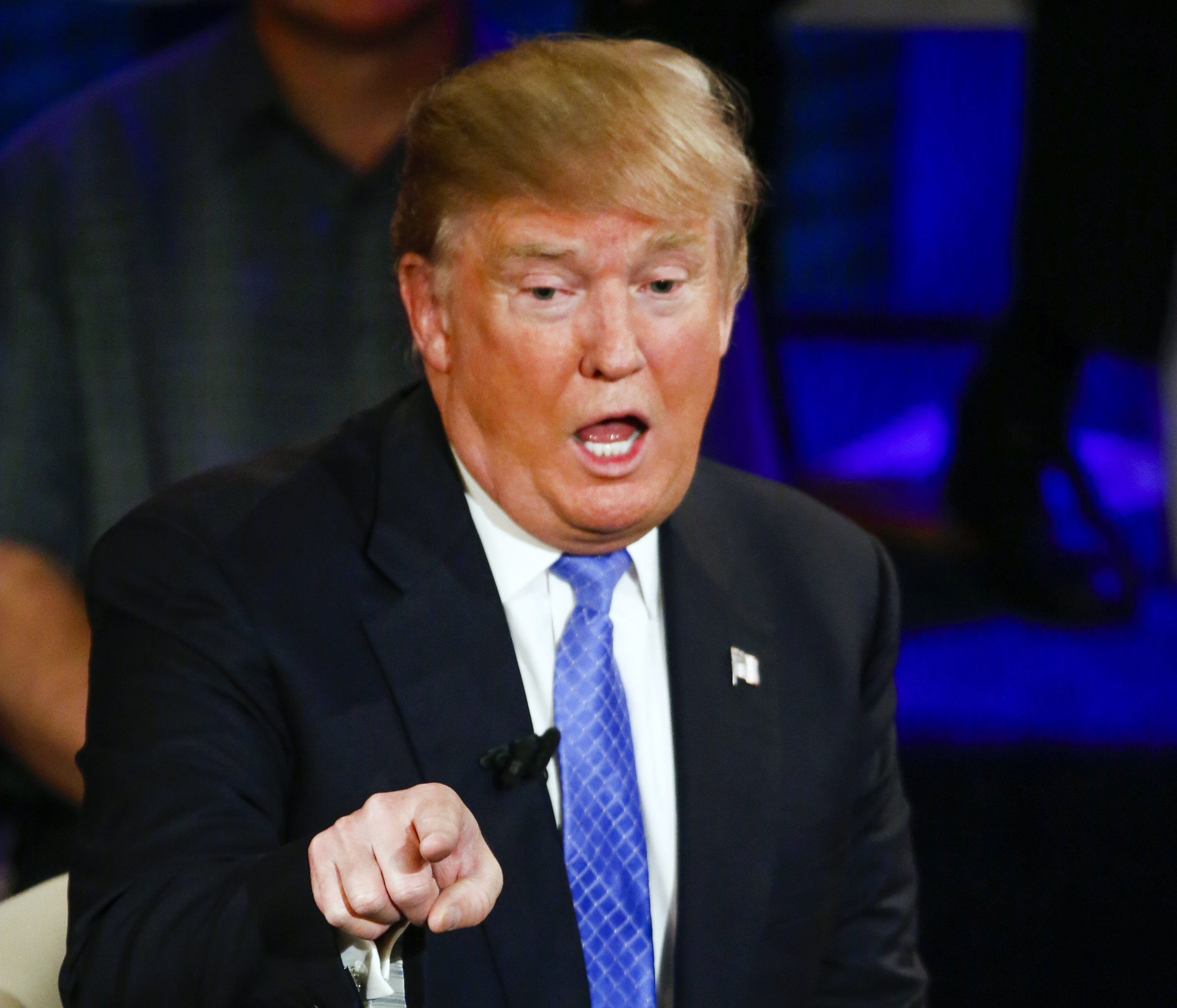The Rise and Fall of the GOP Loyalty Pledge
Trump isn't the only one backing off his pledge to support the GOP nominee.
— -- A long and winding road led to the moment last night when all three remaining Republican presidential candidates backed away from their previous pledge to support the party's eventual nominee.
While Donald Trump has been flirting with throwing out the pledge for some time now, he was joined by his fellow candidates during Tuesday night's CNN town hall. Sen. Ted Cruz and Gov. John Kasich both suggested that they would renege on the pledge if the real estate mogul ends up being the nominee.
Here's a brief history of all the back and forth on the pledge this election cycle:
August 6, 2015: Trump Stands Alone
As the first question at the first Republican debate, the moderators asked the candidates to raise their hands if they would refuse to sign the Republican National Committee's pledge to support the party's eventual nominee.
At the time, Trump was the only one who declined to rule out a third-party bid for the presidency, saying that he would "not make the pledge at this time." His declaration was met with boos from the audience.

"I can totally make that pledge if I’m the nominee," he added.
Though he said he did "fully understand" the ramifications –- a third-party candidacy would possibly give Democrats the edge -– he refused to grant his competitors that "leverage."
"I want to win as the Republican," he said. "I want to run as the Republican nominee."
September 2, 2015: Pledge Confirmed
Though there had clearly been speculation for weeks, sources confirmed to The Associated Press that the RNC had sent around a pledge to the various campaigns only at the beginning of September.
September 3, 2015: Trump Takes the Plunge
In a televised press conference at his Manhattan headquarters, Trump showed his signed pledge after meeting with RNC Chairman Reince Priebus.
“What did I get from signing the pledge? Absolutely nothing," Trump said that day. "Just the assurance that I’ll be treated fairly.”
As Trump held the pledge up for the crowd, reporters pointed out that he had listed "August 3" as the date instead of "September 3."
"We'll change it," Trump said.
February 15, 2016: Trouble Brewing
All was not sitting well with Trump, who by February was the Republican front-runner, and so he began hinting that he would not abide by the pledge.
At a town hall in South Carolina, Trump said that the RNC "better get its act together" and that it "does a terrible job." Trump also said he believed the RNC had treated him unfairly, citing a then-recent debate at which he had been booed.
"The whole room was made of special interests and donors, which is a disgrace from the RNC," Trump said. "The RNC better get its act together because, you know, I signed a pledge. The pledge isn’t being honored by the RNC."
He added: "I signed a pledge, but it’s a double-edged pledge. As far as I’m concerned, they’re in default on their pledge."
March 3, 2016: Four Candidates Double Down
During the second-to-last Republican debate, Sen. Marco Rubio, Cruz and Kasich all reiterated their support for the eventual nominee, even if that person were Trump.

March 29, 2016: The Remaining Three Back Away
Trump, Cruz and Kasich all gave different reasons for reneging their support for the eventual nominee.
Cruz cited the recent attacks on his spouse as the reason for changing his mind. "I'm not in the habit of supporting someone who attacks my wife and attacks my family," Cruz said. "I think that is going beyond the line."
For his part, Kasich was evasive, not giving a definitive answer, but saying that he wants "to see how this thing finishes out."
Trump didn't appear to be phased by the Cruz rebuttal, saying that he has "tremendous support right now from the people" and that he doesn't need the Texas senator's support.
Trump also said that he doesn't support the pledge "anymore" due to the party's treatment of him.
"I have been treated very unfairly," he said.




